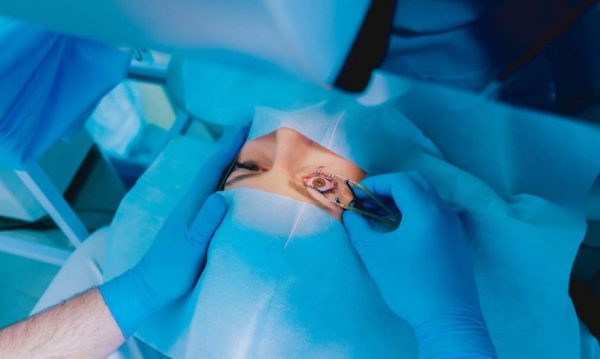Laser eye surgery can help those who feel uncomfortable wearing lenses or glasses. But this surgery, like any other, has possible complications. Besides, it doesn’t help everyone. Ophthalmologist Marina Balkarova told Pravmir to whom this operation is contraindicated, how it is performed and what factors to consider when choosing a clinic.
– When should one think about laser eye surgery?

Marina Balkarova
— In general, there are no absolute clinical indications for laser surgery. You need to consider it when the methods of conventional correction—lenses, glasses—are not suitable for some reason. For example, the patient feels uncomfortable wearing glasses or can’t use contact lenses, and his/her eyesight is unsatisfactory.
In this case, laser surgery is a valid option.
— Is there an age limit?
— Surgeries are not performed on people under 18 years of age. And there is a relative age limit for patients after 40-45 years. As a rule, a person with myopia can see well up close. If we perform a surgery, the patient might get hyperopia. This means that if the patient who is over 40 and who wore glasses for distance has a surgery, then he/she will need glasses to see well at close distances.
However, this is not always the case. If the patient’s vision was poor and he/she had bad myopia, then a good result is possible even after 40. In such cases the surgery is not done completely, the patient begins to see well both far and near. If the myopia was mild, then hyperopia will necessarily develop.
— How is laser eye surgery performed?
— Laser eye surgery is performed using special equipment: the surgeon directs a laser beam to the cornea, which evaporates the layers of cells, making the cornea flatter. The surgery itself doesn’t take a long time. It is minimally invasive with a short recovery time.
Of course, some patients require an individual approach. Sometimes astigmatism correction is necessary, for example.
The surgery is preceded by local anesthesia, with drops. The patient does not feel any pain.
— What complications can there be?
— The surgery is a low-risk procedure. There are some caveats—age restrictions. The patient should be informed that myopia will not go away even after the surgery. And the diagnosis “myopia” will be still included in his papers, only it will have post-surgery status.
The correction affects visual acuity. If the patient had seeing spots (muscae volitantes)—problems with the retina—the surgery can’t fix this.
Among the risks is the development of the dry eye syndrome. This is corrected with medications for moisturizing the cornea. Some patients experience double vision and a feeling like there is something stuck in the eye. But this goes away in half a year or less.
— Some people believe that a woman shouldn’t have this surgery before giving birth. Is it true?
— No, but the surgery can’t be performed during pregnancy and breastfeeding. During this time the endocrine profile changes and complications may arise.
— After 40 years, eyesight deteriorates and hyperopia develops. Should one have the surgery at this age?
— It depends on the degree of myopia. If myopia is mild, up to minus 3 diopters, then it is possible that eyesight will be corrected by itself. But please note that short-sighted people also develop hyperopia. If a person has minus 7 eyesight, then after 40 he/she will not be able to see up close with his/her usual correction, for example, with contact lenses.
This person will have to use multifocal lenses, progressive glasses, or just multiple types of glasses. Thus, even when he/she is over 40, the laser eye surgery will have a positive effect.
— Many clinics offer this service nowadays. What should you pay attention to when choosing?
— I always recommend my patients to choose a specialized clinic, so that a full examination can be carried out there. Often, new clinics offer this: “Come to us with examination results from your doctor, and we will decide whether you should have a surgery or not.”
But the clinic should carry out a full examination, arrange a consultation with a therapeutic ophthalmologist and a surgeon, and perform hardware diagnostics before the surgery. Only then can the surgery be performed.
— Often clinics make special offers for surgeries. Should one take these offers?
— If the clinic has been working for a long time and is reputable, then yes. Such special offers can save you money. But if it is a new clinic, it may not be a good idea.


















